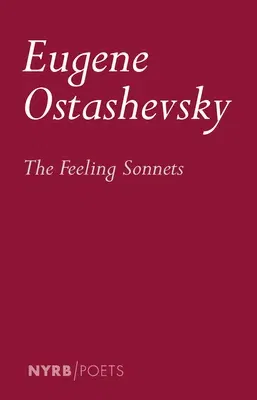Eugene Ostashevsky
(Author)The Feeling SonnetsPaperback, 11 October 2022

Qty
1
Turbo
Ships in 2 - 3 days
Only 2 left
Free Delivery
Cash on Delivery
15 Days
Free Returns
Secure Checkout

Print Length
112 pages
Language
English
Publisher
New York Review of Books
Date Published
11 Oct 2022
ISBN-10
1681377020
ISBN-13
9781681377025
Description
Product Details
Author:
Book Format:
Paperback
Country of Origin:
US
Date Published:
11 October 2022
Dimensions:
20.85 x
14.76 x
0.79 cm
Genre:
Russian
ISBN-10:
1681377020
ISBN-13:
9781681377025
Language:
English
Pages:
112
Publisher:
Weight:
149.69 gm